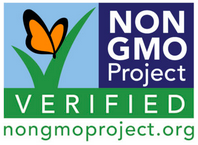We first posted on food fraud in April 2024, where we talked about what food fraud is, and what to do if you come across it.
In this post, we address the role that Kaslo Sourdough has as a food manufacturing company in preventing food fraud. And we also talk a bit more about what you can do if you think you come across food fraud.
How does Kaslo Sourdough prevent food fraud?
If you’re familiar with Kaslo Sourdough, then you’ll know that we have always prided ourselves on making our products with high quality, Canadian ingredients. We take steps to make sure our supply chains are stable and secure so that we end up with accurate ingredients in our products.
We’ve written before about our sourcing practices, and the local farmers and millers that we get our ingredients from. We have good relationships with all of them. And – our ingredients lists are short, so every component counts! We know where everything comes from.
Our food chains are relatively short and straightforward, and we want to keep them that way. Beyond the flour combinations that we use to make our pastas, the other ingredients are our in-house sourdough bacterial culture. And then of course our natural spring water, which we also control. We have a water license for its use, and meet all the standards for using natural spring water during food production.
Non-GMO Verified
All of our products have also been verified by the Non-GMO Project for many years now. We share the Non-GMO Project’s commitment to transparency in the food system.
To get verified, we worked with an independent technical administrator who evaluated our products. They supported the non-GMO verification. That verification is renewed annually.

Other recommendations…
The Canadian Food Inspection Agency has nine suggestions for what companies like ours can do to combat food fraud. We’ve gone over the list, and see that we already do most of them:
- we know and follow the applicable food, labelling and advertising laws
- we verify the authenticity of ingredients used in food manufacturing
- we source our ingredients from trusted suppliers
- we follow good food manufacturing practices
- we keep records that track the path of ingredients in our supply chain
- we ensure we adequately train and supervise our employees, and
- we provide information to consumers through truthful labelling.
We think that the transparency we bring to proactively sharing information about our ingredients, suppliers and our food production processes helps build trust in us as a company that follows through on what it says it does.
If you have any questions or concerns about our products, please let us know.
What else can you do about food fraud?
- Check the label: see if there is any information that is misleading or that strikes you as really odd. If you’re looking at dragon fruit that’s labelled as “grown in Canada”, but we don’t have the climate for that fruit, you might be on to something… (though that’s not to say that greenhouses and other technologies make some things possible to grow in climates we wouldn’t typically expect….).
- Consider the price: If the price seems too good to be true, then it probably is. For example, Parmigiano-Reggiano is a cheese made only in a specific region in Italy. Its production processes depend on the local bacteria for fermentation, and only the master cheese maker knows how to enhance the flavours of the lactic acid bacteria that contribute to its amazing flavour. (Sound familiar?) It’s an imported food product, which would add to the price. When it’s the real thing, it’s priced as such: it’s expensive! If you see some Parmigian-Reggiano cheese that costs about the same as regular Parmesan cheese, the it probably isn’t the real thing.
- Contact industry: grocery stores, manufacturers (like us), producers or industry associations to report concerns and ask questions about the information on a food label or how the food is produced.
- Restated from Part 1: Report your concern to the Canadian Food Inspection Agency.
Let’s keep each other safe and enjoying the foods we love. We can all do our part to prevent food fraud from happening.
Back to news


